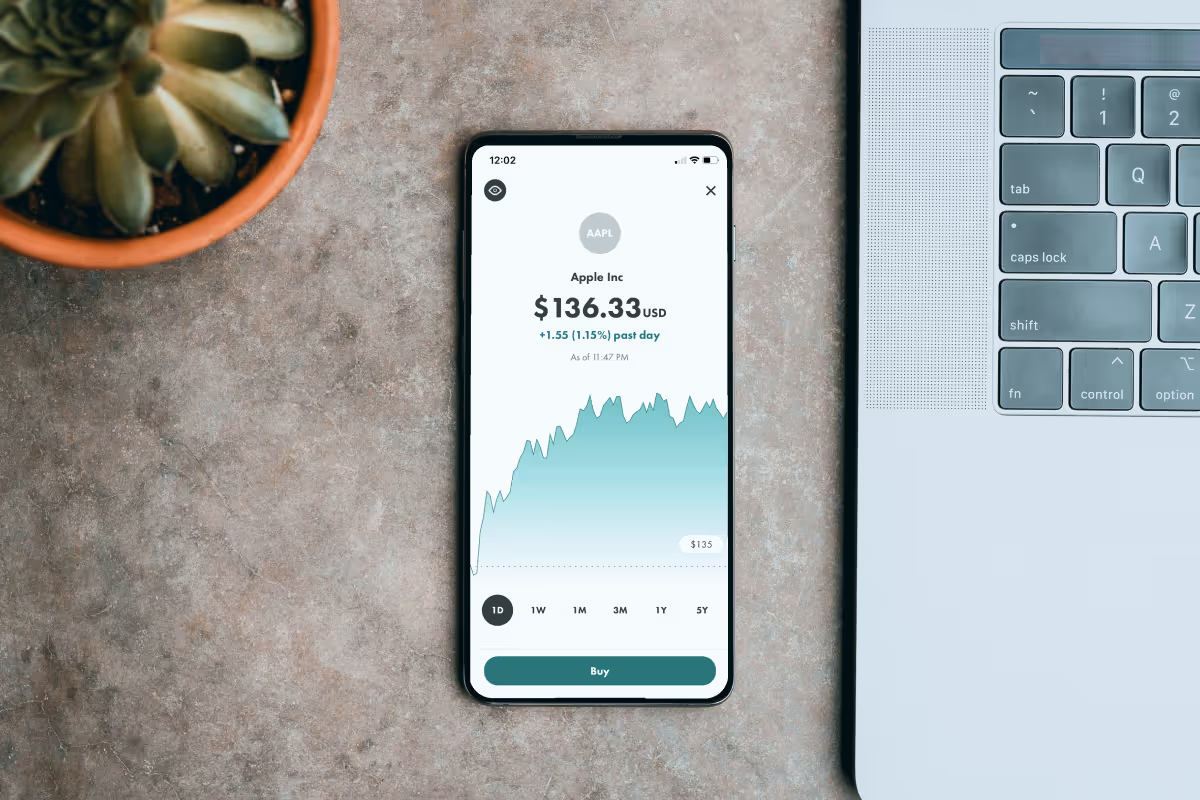Searching for software development partners can be challenging. It should be someone who embraces the right expertise you need and someone you can genuinely rely on.
And the choice out there is overwhelming. The global software development market is estimated at $524 billion in 2025, on its way to over $1 trillion by 2032. With thousands of companies and freelancers offering their “perfect” solutions, how do you spot the one that actually fits?
The kind of partnership you choose shapes everything from how your product is built to how well it resonates with your customers. You need a team that doesn’t just write code but understands your business inside out and knows how to turn your goals into growth.
But how do you actually find the right partner company for your business, and where should you look for it?
As a multiple startup co-founder, I know firsthand what it takes to deliver a quality product. Throughout my career, I've worked with clients from a variety of industries and at different stages of business development, from startups to enterprises. The projects we have worked on span various sectors, including healthcare, fintech, and AI, providing me with a broad perspective on the unique needs and challenges each industry presents.
In this guide, I’ll share practical insights and lessons learned from years in the field, so you can confidently choose a software development partner built for long-term success.

Why Are You Looking for a Software Development Partner?
This is the most significant question you need to ask yourself. The reason why you seek software development partners in the first place will help you know what to look for in one.
Questions to broaden your business and product context:
- What business problem are you trying to solve with this software?
- How does this project align with your company’s strategic goals?
- Are you building an MVP to validate an idea, or scaling an existing product?
- What success metrics (KPIs) will define a “good partnership” for you?
Questions to ask yourself about project scope and technical needs:
- Do you need help with front-end, back-end, or full-stack development?
- Is this a one-time project, or do you expect an ongoing partnership?
- Do you need specific expertise (such as AI, healthcare, or fintech) that your in-house team lacks?
- Will the partner handle architecture design, DevOps, QA, or integration with your existing systems?
Important collaboration and ownership questions:
- Do you want a partner who takes full responsibility for delivery — or a team that works alongside your internal engineers?
- How much control do you want to retain over the project management process?
- Would you prefer a flexible, agile collaboration or a fixed-scope model?
- How important is time-zone overlap or face-to-face communication for your workflow?
Some budget and risk considerations:
- What’s your realistic budget range and expected ROI?
- Are you ready for a long-term commitment, or is this a short-term engagement?
- What risks (technical, financial, operational) are you trying to minimize by partnering externally?
What type of partnership do you expect?
- Do you need a dedicated team extension, a project-based vendor?
- Or perhaps you want to find a technical co-founder, someone who will partner with you in business and help you create a product from the ground up?
- Would a nearshore or offshore team better suit your operational model?
- How involved do you expect your partner to be in business decisions and product strategy?
Defining your goals and objectives first will help you move in the right direction and choose the right partner you need. So, put everything on paper and carefully assess all the goals before proceeding with your search.
Looking for professional app developers? Check out the article on how to find & hire the best app developers to complete your team and speed up the development.
How to Find a Software Development Partner: 7 Steps
Once you have figured out why you need a software development partner and all the following requirements for your partnership, it is time to plunge into the search. We’re going to guide you through 7 steps to find the right software development partner — in our case, an IT service provider— making sure they fit exactly what you're looking for.
So here are 7 steps to nail a software development partnership.

Step 1. Conduct thorough research
These days, you can search for your new partner through a web search, but that may not be very helpful. The browser will display the top results relevant to your search, and those may be great companies, but not every company on the list will be a suitable fit for you. It raises another question: “Where to look for software development partners?”.
Check out the reviews for a particular company to gain insight into its services, expertise, experience, and reputation.
Quora is among the best online sources for finding facts and honest opinions, but Clutch might be even better. It’s data-driven and contains reviews and ratings of the leading IT outsourcing companies.
All companies on Clutch create their profiles, but the platform is responsible for all completely objective reviews. You can rely on them to learn more about how various companies work.
There are also platforms where you can find freelancers if that’s your preferred choice. These are specialized platforms like GitHub or Stack Overflow — the place where experienced individual software developers share their knowledge and background. Also, there are more generic platforms like Upwork, where you can post jobs or search through the available ads. At the end of the day, choosing a freelancer as your software development partner is a bit risky.

Step 2. Check testimonials
Just like reviews, testimonials can help you get a clearer picture of how a particular company operates and serves its clients.
Testimonials can be written or recorded, but their value lies in the context: who’s speaking, what the project involved, and what results were achieved. When evaluating them, look for details that reveal more than just “great teamwork” — focus on impact, outcomes, and consistency.
Explore multiple sources to verify authenticity and get a fuller view:
- LinkedIn pages — organic feedback and endorsements from verified company accounts.
- Video testimonials or interviews — often shared on YouTube or the vendor’s own site; these give you tone and body language cues that written quotes can’t.
- Ask the potential software development partners for the contacts of their current/previous clients and get on the phone with them — that way, you can ask deep questions and learn what it’s like working with this vendor.
- Case studies — found on the company’s website or Medium blog, these often include client quotes and real metrics.
- Social proof — check how clients engage with the company on LinkedIn posts or announcements (likes, comments, shared wins).
Cross-referencing these sources helps you spot red flags or, conversely, confirm that the company’s reputation is consistent across platforms.
Uptech Client Testimonial: Belsien Thomas, Senior Director of Engineering at Aspiration
For instance, this testimonial from Belsien Thomas, Senior Director of Engineering at Aspiration, is one of many that reflect the experience clients have when partnering with Uptech.
Step 3. Assess expertise
Part of the road has passed. The next step to help you find a software development partner is checking the company's expertise. How to do that? First things first, check the domains a company specializes in. Most software development companies clearly outline this on their websites, with sections like “Industries We Serve” or “Our Services.”
Look for:
- Expertise in your industry (like fintech, healthcare, e-commerce, real estate, or AI).
- Mentions of regulatory or compliance knowledge that are crucial for domains like healthcare, finance, or retail.
Your software development partner should have relevant business expertise in the project niche you’re planning to launch. Let's say you have a fintech startup idea.
Ask yourself:
- Have they built products with similar functionality or business models?
- Do they demonstrate domain fluency, such as knowledge of fintech regulations, payment integrations, or user verification systems?
- Do they contribute to the discovery or strategy phase (not just coding)?
- Can they advise on scalability, architecture, or monetization models for your product?
Take Uptech, for example. We have a strong track record in the fintech sector, with multiple projects to our name. One notable example is our collaboration with Cardless, a fintech company for which we built a native Android app in just 3 months and provided full maintenance across platforms. Without any expertise in financial technology, we couldn't do that, especially in such a short time.

You don't want to work with someone who doesn't have a clue how to help you achieve your business goals. The company you choose for a long-term partnership must be able to cater to your customers' needs. It must pack the right expertise to develop software that will meet the needs of your target users.
Step 4. Explore case studies
One of the best ways to check your potential partner’s experience and expertise is to explore their work results. Look for their previous cases and dive into every little detail that will showcase how they work and what makes them different.
Case studies will show you how a particular software development company has solved various challenges that it previously encountered. They will show you what solutions and features they implemented, what tests they used to make sure everything ran smoothly, and how they managed to create great user experiences.
When looking through a particular case study, pay attention to whether it’s informative enough for you to understand the problem a client came with, the solution a software development company offered, the features implemented, and the overall results reached.
For example, in our work with GOAT, a leading global retail platform, we were tasked with elevating their existing "Offer Flow" to make it more interactive and up-to-date. Our solution — a fully custom price selector — significantly enhanced the user experience by enabling users to easily set their offers, showcasing our ability to deliver tailored solutions that meet our clients' unique needs. All of this is explained in detail on the case page.

On top of that, there’s a great chance that companies mentioned in the case studies are still partners with the software development provider you are checking, so you can even learn more about how they operate in ongoing business relationships.
Step 5. Evaluate the company’s culture
A company's culture is the personality of a company that provides you with insight into the company's values and behaviors in its work environment.
To learn about the company's ethics, goals, and expectations, you can ask for an Introduction call, visit the vendor's office, or check the company’s social media, too. The introduction call is a great opportunity to talk with several team members (not only sales and project managers), and see the real company vibe.
Visiting a vendor’s office is an even better way to get to know who you are going to cooperate with in the future. You can take a look at how our client from Sweden recently visited our office
If there’s no such opportunity, you can always go to the potential software development contractor’s social media accounts, namely LinkedIn, Facebook, Twitter (now X), Instagram, or even TikTok.
No matter if you're able to meet in person or remotely, make sure you choose a team of professionals who are dedicated, meticulous, and genuinely passionate about business. They need to be as committed as you are so that you can seamlessly work together toward achieving your goals.
At the same time, to work together as partners, you should openly share details about the product and give feedback on time. It will help you find the best solutions to IT challenges.
Step 6. Set up smooth сommunication
Communication is key to any successful partnership, especially when it comes to developing a software solution. If there’s poor communication between you and your chosen partner, how will you ever get on the same page?
It’s essential to remember that excellent communication equals transparency. You need to be able to talk with the entire team you hire about all the details related to your projects. Both parties must be fully transparent regarding the development process and communicate openly and honestly. Even if the tech company’s process is remote, well-organized communication will make it work.
Make sure there are absolutely no language barriers so that you can understand one another correctly. Both teams should feel comfortable discussing risks, blockers, and ideas. If you’re working across borders, language fluency becomes part of quality assurance.
Ask yourself:
- Can everyone express complex technical ideas clearly in English (or your shared language)?
- Is feedback captured and acted upon quickly?
- Does the vendor encourage proactive updates rather than reactive responses?
Before the project begins, define how, when, and through which channels you’ll communicate. Set expectations upfront:
- Project cadence: How often will you have check-ins or sprint reviews?
- Tools: Which platforms will you use (Slack, Jira, Notion, Trello, Zoom, etc.)?
- Roles: Who are the key contacts on both sides: PMs, tech leads, designers, QA engineers?
- Format: Will progress be shared via demos, reports, or dashboards?
Establishing this rhythm early prevents friction later on.
At Uptech, we prioritize clear and effective communication when working on projects. Our clients often highlight this quality in their reviews and testimonials. For insights into how we maintain this standard, feel free to check out our client feedback on our Clutch profile.
Step 7. Interview the developers
Talking directly with developers gives you a true sense of what your potential partner is capable of. Sales representatives can describe the company’s services, processes, and promises, but it’s the developers who will actually bring your product to life. Their mindset, technical reasoning, and communication style will tell you far more than any brochure or proposal ever could.
So, once you put together a shortlist of companies, be sure to set up meetings with all the developers. Only then will you be able to evaluate who the right people are for the job.
Meeting the technical team helps you:
- Validate expertise: Confirm that the people assigned to your project actually have the skills your solution requires.
- Assess communication: Gauge how clearly they explain technical concepts — a sign of both competence and collaboration skills.
- Evaluate culture fit: See whether they share your approach to problem-solving, deadlines, and ownership.
- Identify red flags: Hesitation, vague answers, or overconfidence may hint at gaps between the company’s promises and its actual capabilities.
Use your time with the developers strategically. Go beyond surface-level questions like “What tech stack do you use?” and focus on how they think, plan, and build. Ask to meet not only developers but also team leads, QA engineers, and UX designers who will be involved in your project. These roles interact daily and can reveal how well the team communicates internally.
Once you’ve met the technical team, you’ll know whether they can deliver on the promises you heard from sales and whether they’re people you can trust for a long-term partnership.
These were 7 steps on how to choose the software development partner. But along the way, you may face some challenges. Below, we have rounded up a few useful recommendations for you.

Tips to Build Trusted Software Development Partnerships
Even at this point, you still may have uncertainties about the vendor choice. The truth is, if you never try, then you never know. However, we’d like to share some tips to build a trusted software development partnership and say goodbye to any second thoughts you have.
There are 3 most common questions we hear from our clients:
- How to check that the company matches my needs?
- How to negotiate the price?
- How do you protect my sensitive data and intellectual property? What are your data security practices, IP ownership rights, and NDA policies?
Based on these questions and our expertise, here is some advice to help you out.
Prepare the list of questions
You should devote time to and prepare all the necessary questions to find the right software development partner. We recommend creating a list of questions that will help you get familiar with your prospective partner.
Here are a couple of questions that can be on your list:
- Can you please give an overview of the process a company will go through when deciding to work with you?
- What does your typical process of taking on a new project look like?
- When approximately would you be ready to start the work?
- What will the communication between your team and our team look like?
- What information from our end would be useful for you to prepare the proposal?
- How much involvement from our end do you expect during the process?
- Could you please tell us about the legal part (legal entity, way of payments, periods of payments, etc.)?
- What would the next steps be?
It is in your best interest to ask as much as possible right at the beginning. The more precise responses you'll get, the easier the decision-making process will be.
Put value before the price
Price is undoubtedly a critical factor when choosing a development partner, and you should definitely know the approximate costs of building your software. However, the pricing point definitely shouldn’t be the deciding one.
If someone offers their services at meager prices, they may be sacrificing quality. Instead of chasing the lowest bid, evaluate what you’re actually getting for the price:
- What level of expertise and experience does the team bring?
- Do they include discovery, testing, and maintenance in the estimate?
- How do they handle change requests or scope adjustments?
- Will they support your product post-launch?
A slightly higher price often buys you peace of mind: a partner who communicates clearly, delivers clean code, and helps your product grow over time.
If you’re concerned about budget constraints, there are smarter ways to manage costs without compromising quality. Check out our guide on how to reduce app development costs — it outlines practical strategies to optimize your budget and still get high-value results.
Assess security and data protection
Building trust with your software development partner starts with protecting your data and ideas. Don't just focus on their coding skills; look for clear security policies and practices to keep your information safe.
There are a couple of key questions to ask:
- Data security. How do they safeguard your data during development and storage? What security measures are in place?
- Intellectual property. Who owns the rights to your code and other intellectual property? Is it clearly defined in a contract?
- Non-disclosure agreements (NDAs). Do they have strong NDAs in place to protect your confidential information?
Choose a partner with robust security protocols and clear communication about how they protect your assets. Remember, their security is your security: a weak link can compromise your entire project. To learn this information, you can go to the company’s site. They often have special pages explaining their security and privacy policies. Or, which is even better, you can contact the company directly using the Contact Us form.
Why Uptech Is Your Best Software Development Partner
Uptech has a stellar reputation as a dedicated software development partner. We don't just say it, but we mean it. Here's what we achieved over 10 years of working with startups and established companies worldwide.
- 200+ products delivered
- Clients from 8 countries worldwide
- A team of 80+ experienced IT professionals
- Revolutionizing products like Dollar Shave Club, GOAT, Nomad, and Aspiration are in our portfolio.
- Top-notch expertise in healthcare, AI, fintech, real estate, and on-demand industries.

These are not just records. We strive to become a reliable software development outsourcing company for our clients.
What’s more, we’re constantly improving our knowledge, devoting a lot of time and effort to learning and incorporating new technologies. Lately, we’ve been focusing a lot on AI and have completed some cool projects. One of them is Angler AI, an AI-powered platform aimed at transforming how businesses approach customer acquisition and lifetime value enhancement. In developing Angler AI, we focused on crafting a seamless, end-to-end web application that leverages AI to deliver targeted marketing insights and strategies.

Working hand in hand like one team is what we offer our clients and expect from them in response. It's about a partnership, not simply delegating tasks.
For us, good software development outsourcing is about positive client relationships. It fosters stronger collaboration, ingenuity, and space to do our best work.
If you’re looking for a software development partner who combines technical excellence, product thinking, and genuine commitment, Uptech is ready to build with you — contact us for a free call.

Summary
In conclusion, we wanted to say that while finding software development partners is not an easy endeavor, it’s possible. There are a lot of factors that you need to consider so that you can make an informed decision.
Start by understanding what kind of outsourced services you need and follow the checklist to find the right outsourcing company for your project:
- Conduct thorough research
- Check testimonials
- Assess expertise
- Explore case studies
- Evaluate the company’s culture
- Set up smooth communication
- Interview the developers
By following the guidelines above, you make a decision that leads to a reliable long-term partnership and achieves business goals.
FAQs
What is a software development partnership?
A software development partnership is a collaborative arrangement between two parties, typically a business that is looking to create a software solution and a software development firm that has the expertise and capacity to build those solutions. This kind of partnership goes beyond a mere client-service provider relationship, turning a software development partner into a strategic cooperator invested in the project's success.
What does a development partner do?
A development partner's role has more to it than just coding; they often take part in the strategic planning of the project, from creating a concept and design to launch and maintenance. They work closely with clients to understand their business model, target audience, and competitors.
What does a software development partnership agreement usually include?
A typical software development partnership agreement with a development partner includes the project scope, deliverables, timelines, budget, payment terms, confidentiality obligations, intellectual property ownership, quality assurance measures, and maintenance commitments.
Are there any differences between app development partnerships and what is described in the article?
While the essence of app development partnerships shares many similarities with broader software development collaborations, there are nuances specific to app projects. These can include a greater focus on UI/UX design, mobile platform-specific requirements, app store compliance, and integrating mobile-specific features like geolocation, push notifications, and sensor usage. Application development partners know well how to navigate these complexities and ensure the high quality of the apps being developed.












































































.avif)























